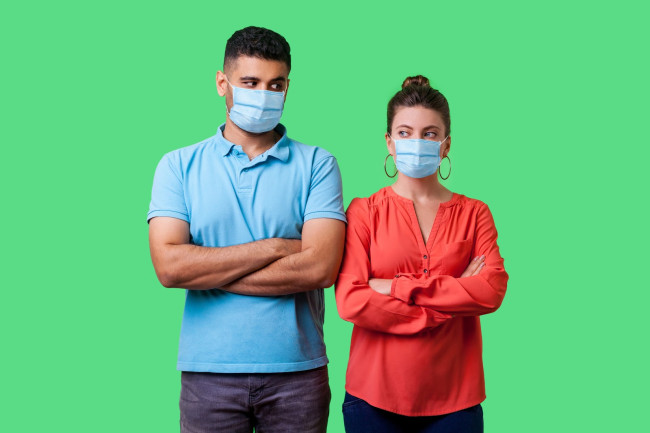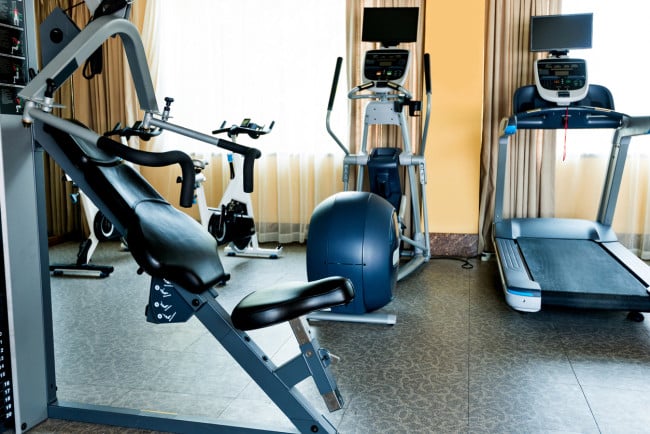My roommate was exposed to the coronavirus. Do I need to be in quarantine too?

Experts say that if your roommate has been exposed to or has Covid-19, you should self-quarantine under the assumption you have it too.
iStock
My roommate was exposed to the coronavirus and is self-quarantining for 10 days. Do I need to quarantine myself too? Our NYC apartment is small and we share a bathroom, which makes things difficult.
Experts say that if someone you live with has tested positive for Covid-19, you should get tested and quarantine too.
At this point you can assume that you have been exposed to the disease—whether or not you or your roommate have symptoms—and now must work to prevent spreading the virus to others.
Roommates are considered to be household members, like a family, and the official guidance given to families to self-quarantine together applies to roommate-households as well, says a spokesperson from the city’s Department of Health.
Editor's note: An earlier version of this post was published in March 2020. We are presenting it again with updated information for January 2021. Realty Bites tackles your NYC rental questions. Have a query for our experts? Drop us an email. We respect all requests for anonymity.
Now that Covid-19 diagnostic tests are available statewide for all New Yorkers, you should get tested if you live with somebody who has tested positive, even if you don’t have symptoms. And, according to the DOH, you should continue to quarantine regardless of your test results if you were recently in close contact with someone who tested positive. (Here’s where you can find a local testing site).
Once 10 days have passed since your symptoms started, you have not had a fever in at least 24 hours, and your overall illness has improved, you can exit quarantine, according to NYC’s DOH. If you tested positive but never had symptoms, you can exit quarantine after 10 days.
And, both you and your roommate should continue to get tested regularly if you live in a neighborhood with high Covid rates.
“If [you cannot get tested] then it would also make sense to self-quarantine for a week to 10 days, unless it turns out that the roommate does not have Covid-19,” says Philip Alcabes, an epidemiologist and professor of public health at Hunter College.
It can be difficult if you live with roommates who you aren’t very close with in a small NYC apartment. You might even have to step in as a caretaker if your roommate starts showing symptoms—or vice-versa.
Here are some extra precautions to take while you’re stuck inside together.
Keep your distance
The city’s DOH and CDC recommends that anyone who is sick isolate themselves from those they live with by having their own bedroom, and bathroom, if possible.
If you have to share a bathroom, there are some precautions to keep in mind. For starters—don’t be in the bathroom at the same time. Whoever is sick should completely clean and disinfect the bathroom after each use. If that’s not possible, the designated caretaker should wait a sufficient amount of time and then proceed to clean and disinfect the bathroom before anyone else uses it. Make sure you wear gloves (and wash your hands after you take them off) while cleaning and whenever you're handling clothing, towels, or linens.
Your home is your emotional and physical sanctuary, and right now, it’s probably doing double or even triple duty. With Zoom meetings, home schooling, virtual happy hours, and other distractions, accidents can happen, like cooking fires, sink overflows, floods from broken dishwashers and other mishaps that could cost you thousands. Now more than ever, protecting your home, possessions and finances with insurance is an affordable necessity, not a luxury. Click here for a quick quote from the apartment insurance experts at Gotham Brokerage. >>
If you have to be in the same common area, you should stay at least six feet away from others and wear a face mask.
The CDC also recommends that anyone who has tested positive limits their interaction with pets.
Don’t have visitors, and that goes for a girlfriend or boyfriend who doesn’t live with you, if someone in your apartment has the coronavirus.
You should also avoid sharing drinking glasses, utensils, and towels. If you share a bed, DOH recommends that one person sleeps on the couch.
Step up your cleaning and disinfecting
The CDC has an online guide on how to effectively clean and disinfect during the pandemic, with extra measures if you live with someone suspected or confirmed to have Covid-19.
In general, you should increase routine cleaning with household cleaners and disinfectants of frequently touched surfaces like tables, doorknobs, light switches, handles, desks, toilets, faucets, sinks. It’s important to remember that cleaners simply remove germs, but do not kill them. Disinfectants use chemicals to kill the germs, which prevents the spread of the virus.
If you live with someone suspected or confirmed to have the coronavirus, in addition to cleaning frequently touched surfaces, the CDC also recommends daily cleaning of surfaces in your common areas like tables, chairs, and remotes. However, you should reduce how much you clean in the area where your sick roommate or family member is isolated in order to reduce your exposure.
Some experts say the virus can remain stable in the air for hours and live on surfaces for days, so even if you’re staying inside, wash your hands frequently, especially after you cook, eat, or come in contact with pets or those who are positive for Covid-19 and need your assistance.
And don’t forget to wash or sanitize your hands after coming in from throwing out the garbage or checking the mail because of all the knobs and surfaces you touch in the process.
You Might Also Like





























